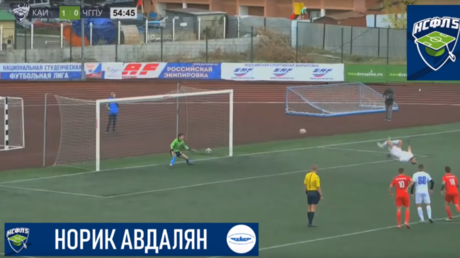Brazilian lawmaker sparks backlash after calling for revision of child labor laws, citing 13yo skateboarder’s Olympic silver
A Brazilian politician landed in hot water after calling for a loosening of the child labor laws, pointing to the Olympic silver medal brought home by 13-year-old skateboarder Rayssa Leal. Critics roundly condemned the idea.
Sostenes Cavalcante, a Democratas Party deputy for Rio de Janeiro, took to Twitter on Monday to propose a revision to Brazil’s child labor statute – which bars anyone under the age of 14 from holding a job – suggesting Leal’s silver medal showed that younger kids are capable of being employed.
“Brazilian children aged 13 cannot work, but skater Rayssa Leal won the silver medal at the Olympics,” he said, adding “Hey! It's just a thought… Congratulations to our Olympic medalist!” while urging for a “revision of the Statute of Children and Adolescents now!”
In another tweet later on Monday, Cavalcante cited an excerpt of the labor law that sets 14 as the minimum working age, saying he would like to see that particular article changed.
The proposal did not go over well with many observers online, with Brazil-based journalist Glenn Greenwald noting Cavalcante’s tweet was flooded with criticism.
Brazilians doling out quite the ratio: pic.twitter.com/KDa5EOFa1T
— Glenn Greenwald (@ggreenwald) July 26, 2021
Brazilian Senator Paulo Rocha joined the detractors, calling the idea “absurd” while saying Cavalcante “took advantage of a 13-year-old athlete's victory to ask for a review of [the law] and defend CHILD LABOR.”
There is no comparison between child labor and the Rayssa Medal. Children must study, play, play sports. Working means not having time for any of this.
Paulo Sergio Pinheiro, a Brazilian diplomat and longtime human rights activist, also panned the suggestion, sharing a photo of a smiling Leal alongside a young Brazilian girl washing a car’s windshield while asking Cavalcante to compare their situations.
“What distorted view of reality is it to think that a child playing sports is the same thing as a child working? Do you think both girls in the photo are playing the same 'role' in society? This false symmetry is absurd!” he said.
Que visão deturpada da realidade é essa para achar que uma criança praticando esporte é a mesma coisa que uma criança trabalhando? Você acha que ambas as meninas da foto estão desempenhando a mesma 'função' na sociedade?É um absurdo essa falsa simetria! pic.twitter.com/iEPCBNnTDi
— Paulo Pinheiro (PSOL Carioca) (@paulopinheirorj) July 26, 2021
One critic argued the 13-year-old shredder likely would not have seen Olympic success had she “worked cutting cane” rather than practicing her sport, while another asked whether Cavalcante had “ever heard of a supermarket shopping bagger Olympiad? Cement Loader World Championship? Cane Crop Cup?” adding mockingly, “It’s just a thought.”
The deputy’s party later issued a statement on the controversy, saying Cavalcante was voicing his personal opinion and that the Democratas Party supports the “full protections” of existing child labor laws.
Reached by a local outlet, Brazilian lawyer Henrique Soares Melo explained that Leal’s participation in the Tokyo games does not qualify as ‘work’ under the country’s laws.
“The Olympic medalist is not working, she is competing and for that she receives a specific authorization to compete through a concession from her parents,” he said. “Even though they have awards, she doesn't work. It's totally different from taking a child and allowing him to do any kind of work within a company.”
According to data compiled by the Brazilian Institute of Geography and Statistics (IBGE), around 2.5 million children and adolescents aged between 5 and 17 currently work in the country, most doing domestic labor, agriculture, construction and even taking part in drug trafficking.
Despite the wave of outrage, however, some came to the politician’s defense, with several commenters arguing that working at an early age had been beneficial for them, while another said the decision ought to be “between the person, their parents and their employer.”
Agree with your point that he politicized this unnecessarily. But Child Labor Laws can be idiotic in an increasingly digital world where children could conceivably spend more time coding vs. watching YouTube.
— Scott Moore (@scottcmoore1) July 26, 2021
Being able to work in my early teens not only literally saved my life but also went a long way toward keeping me out of further trouble. This is not something that should involve anyone other than the principals.
— Andres Yver (@Odd_ysseus) July 26, 2021
Good. We don’t need the state interfering with the lives of people because they think someone is too young to work. That decision is between the person, their parents and their employer. Not government’s business.
— Bruce Fenton @ brucefenton (@brucefenton) July 26, 2021
Think your friends would be interested? Share this story!















